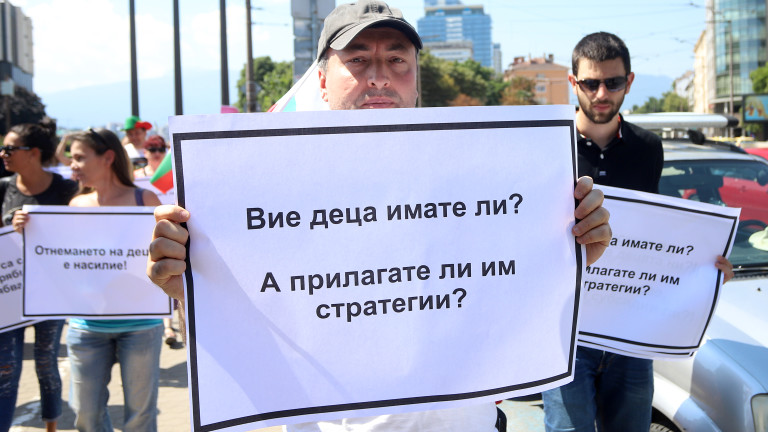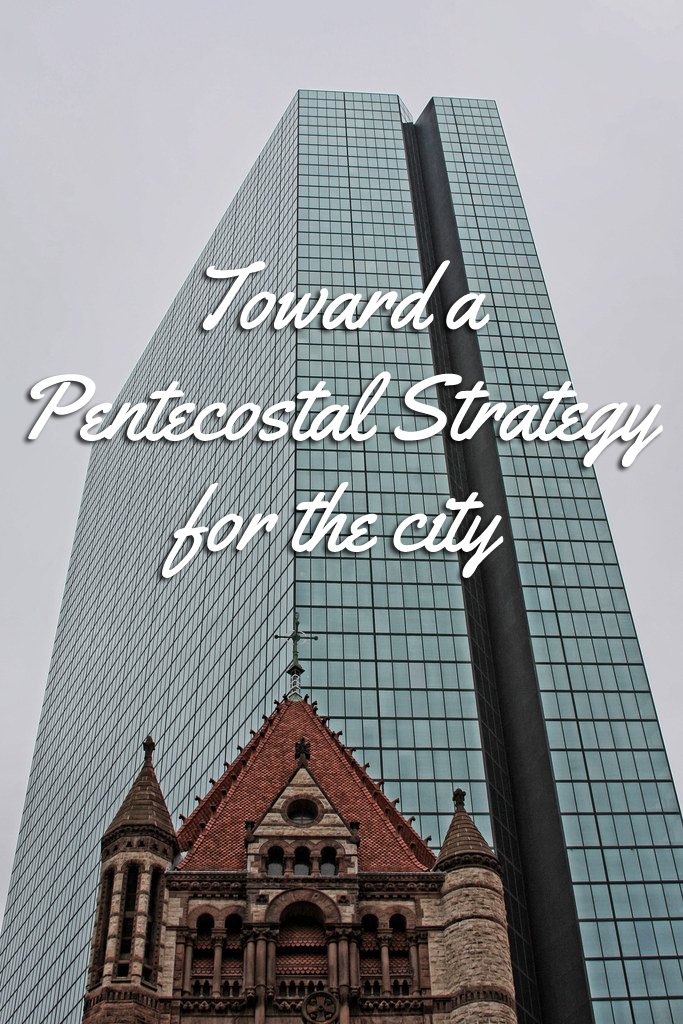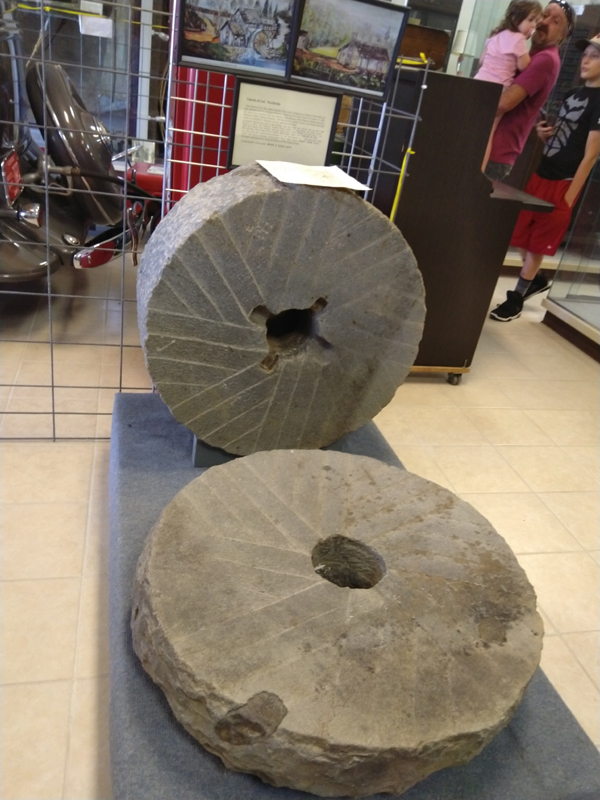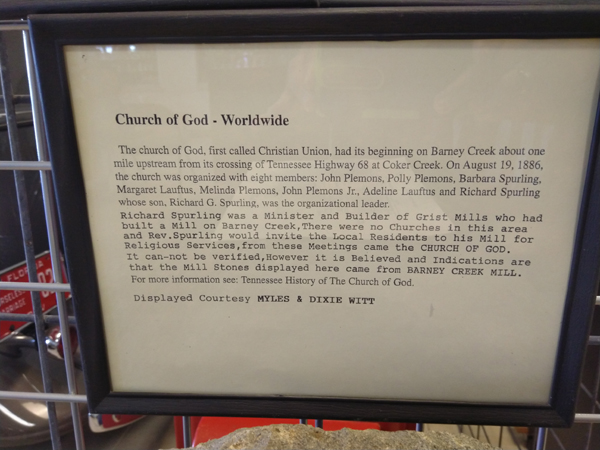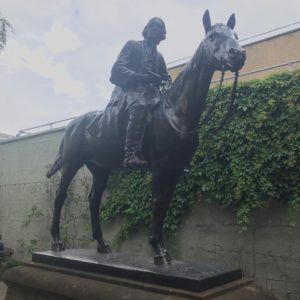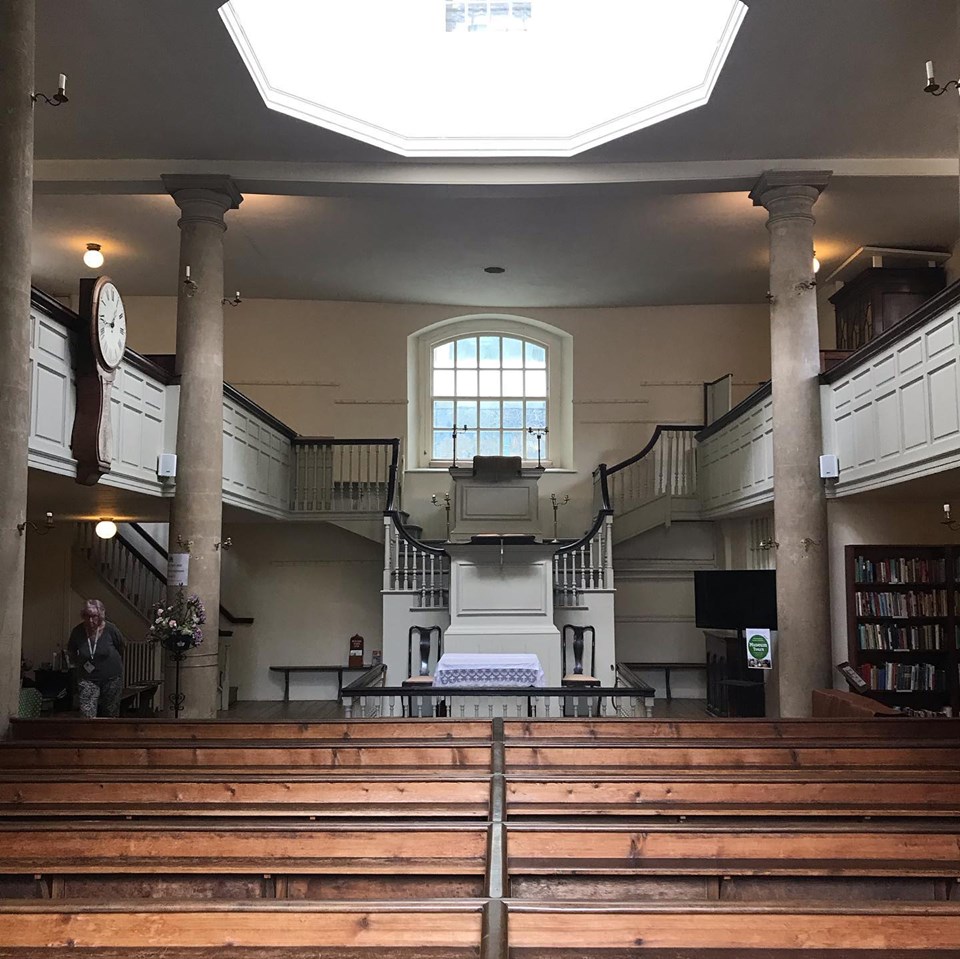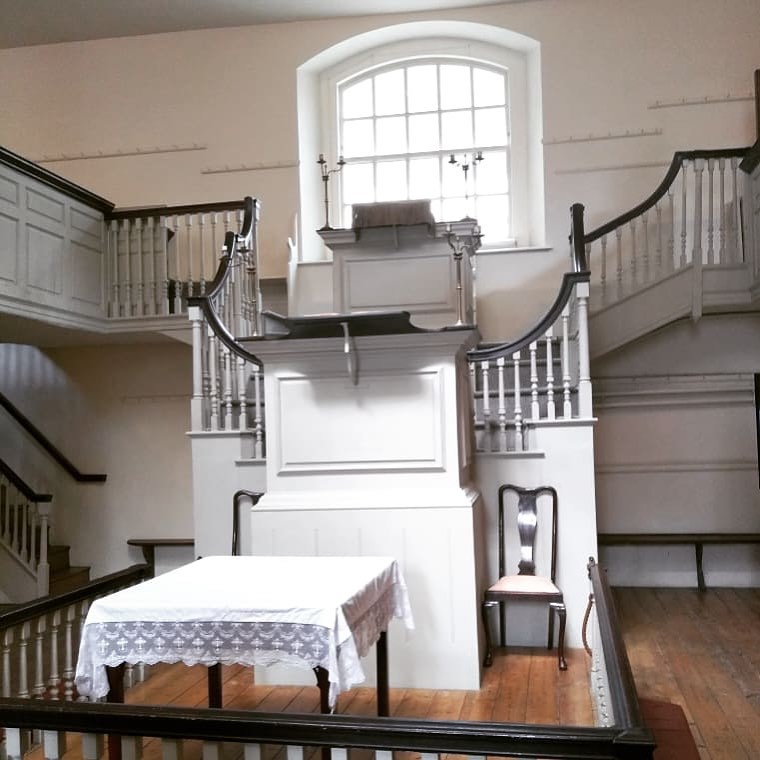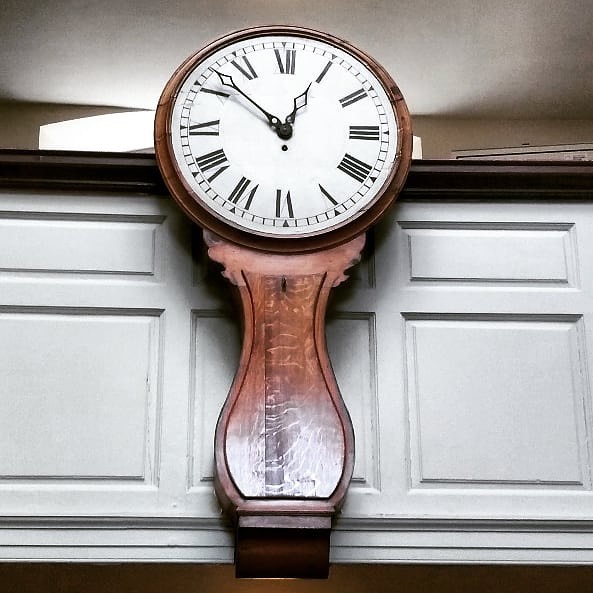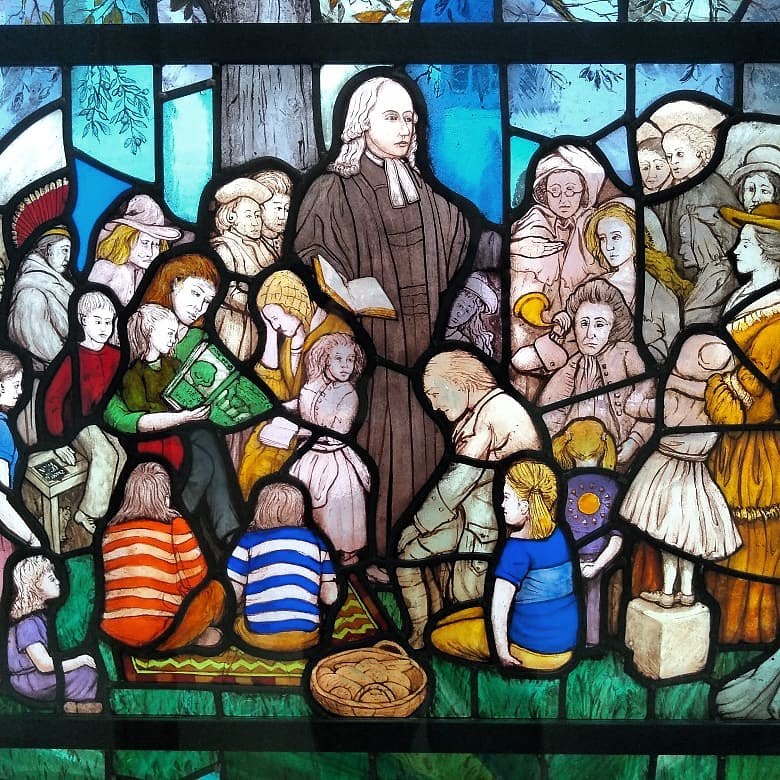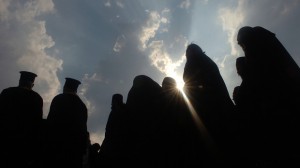Bulgarian Churches Protest against new Child Protection Policy
Several of our students who graduated from our chaplaincy program in Bulgaria about a decade ago, are among the lead organizers of a massive international wave of protests against a new package of child protection laws similar to Norway’s Barnevernet concept. The start is given in Sofia, Capital city of Bulgaria, where people are very unhappy about a new ideological concept of child protection policy which infringes upon the rights of the parents and the integrity of natural family. The protest will be organized through the whole month of September 2019 in many cities of Bulgaria and in other cities throughout the world with many parents turned into grassroots pro-family activists.
The new legal provisions in Bulgaria
Thus, according to the new laws, Bulgarian activists say that:
- multidisciplinary teams (police, social workers, psychologists) will be able to enter people’s homes without a court order and remove children even based on anonymous calls saying the child is neglected or abused
- then the child is placed into foster care via administrative procedure until brought to court, which can take months and in some cases years
- from then onwards, under certain conditions of the law and through non-governmental organizations, the removed child can be adopted by people from all over the world
- after international adoption, the biological family will never see that child again (personal data such as personal ID number, certificate of birth will be changed).
Our information is that Romanian law also includes some similar provisions, but there is still little institutional capacity to implement them. NGOs are already involved in social services and even adoptions in Romania, only that this is little known to the public.
The new concept and ideology was heavily promoted in Bulgaria through Norwegian grants and that is why in some cities the protests will be held in the front of Norway’s embassies and consulates.
„We are worried that Norways has heavily invested in Bulgaria. Our politicians are ready to sell our country’s children. We are a small country, we shall never be England or Germany, so we shall never have their standards of living. And yet they are already removing Bulgarian children from their families based on the reason of poverty. And the Social Services Law adopted in March 2019 will be in force starting from January 1st, 2020”, state the organizers.
Protests are taking place in September in Bulgaria, Germany, Poland, Italy, Canada, Austria, Ireland, Serbia, New Zeeland, Denmark, Lithuania, USA and even Norway.
It all started with a Child Strategy
In 2018, in Bulgaria, 152 NGOs were non-transparently financed outside the country to propose “The National Strategy for the Child 2019-2030”, under the slogan “All rights for all children”. It was forwarded to policy makers and decisional factors.
The strategy was based on the following presuppositions:
- all parents are incompetent and incapable and are potential abusers for their children (mentally and physically)
- only the state and NGOs have the right to decide regarding children and children will appropriately develop and thrive only under their expert care.
The strategy has the following characteristics:
- comprehensiveness of object (it targets all children at conception, no matter whether they are in a need, abandoned or injured, “the strategy targets the three stages of childhood, as a period of the entire human life cycle” – pregnancy and early childhood; childhood; teenage years).
- conflicts with the Bulgarian Constitution (Article 47): the “raising and upbringing of children“ is the “right and obligation of their parents,“ and the state’s role in this process is to assist them, not replace them.
- adopts the child-centered model (from the third protocol of the UN Convention, which has NOT been ratified by Bulgaria) – authorizing the child, regardless of the age and maturity, to make decisions and receive social services and counseling without PARENTAL CONSENT.
- defines the child as a separate entity, with separate rights, which is contrary to Bulgarian law, ignoring terms such as: minor, juvenile, parent, guardian/custodian, etc.
After a national protest in 30 Bulgarian cities, on May 11, 2019, Bulgaria’s Prime Minister stated: “There will be no Strategy, I will order the Minister of Labor and Social Policy to reiterate in the morning, lunchtime and evening at the briefing that there is no Strategy for the Children”.
Despite his words, the ideas embedded in the supposedly annulled Strategy are being passed as laws and regulations, changes and amendments that are even contrary to the Bulgarian Supreme Law and also contradict AIN principles enshrined in the European Convention on Human Rights. The ideas in the spirit of the Strategy were pushed into changes in 28 laws (starting with the Child Protection Act) and a passing of a whole new law – the Social Services Act.
Working for the benefit of various non-governmental organizations that promote gender ideology and sexual education, the Law on Social Services was adopted in March 2019 effective January 1, 2020.
„With this law, we have the complete abdication of the state, which openly admits that it is incapable of fulfilling its purpose. The social functions of the state are transferred to private organizations, often international ones (and there is no clear requirement for them to be licensed in Bulgaria). Moreover, every child is their target, not just children in need… The law is working for the benefit of various non-governmental organizations promoting gender ideologies as well as early sexual education.”
Bulgarian activists have now reached over 175,000 concerned citizens, both Bulgarians and foreigners living in Bulgaria. There have been numerous information campaigns and protests in over 30 cities across the nation, which have, unfortunately, been widely ignored by the media and politicians alike.
The Strategy and the new approach to Social and Child Services are based on the Norwegian Model and heavily funded by Norway and its grant mechanism. In the name of “the rights of the child,” politicians, lawmakers and NGOs are busy working to undermine what Bulgarians hold dear: the traditional family and the role of the parents.
Toward a Pentecostal Strategy for the City
Toward a Pentecostal Strategy for the City
One of the questions that seems to come up in this course discussion is how to change the world around us with a more positive and effective approach toward using the Gospel of Salvation. In this particular module, the difficulty addressed is ethnocentricity. The particularity of our search then arrives at the more detailed question, how can we change the culture (respectively subcultures) of our church congregations? This is a drastic move from a closed circle toward an outreach community that many congregations are unable to accomplish. How do we then empower such congregations to be transformed into cultural reach-outs to a single ethnos or multiple ethnic groups?
Problem
The problem in the first quarter of the 21st century has been incongruity of our church strategy with the times we live in and the mindset they occupy. We’ve been preparing the church for the multicultural battle, all and while we should have been equipping the saints how to rebuild the walls since the battle has been lost.
We’ve been equipping leaders for the ministry while the church ship has been sinking only to end up with well trained captains of a sunken fleet. And in a doomed attempt to reconcile the reality of the ministry with their training, they have turned to wave walkers who briefly surface for breaths of fresh air during Sunday worship only to return to the deep blue walk of their daily ministry never finding their lost piece of eight.
For the battle was lost long ago before the present generation of ministers ever came to existence. They know not the battle. They’ve only seen the ruins that were left within the broken walls of the church. And they have been struggling to reconcile the incomputable of what church eldership has been teaching them to battle against with the Nehemiah calling for restoration, which God has placed upon them. For the answer has never been in building a New Jerusalem for a fresh start, but restoring the old Jerusalem and its former glory to a new state that reclaims our history and heritage.
Context
Recent analysis of migrant churches in the United States reveals that the predominant majority of them are located in cities which have a high influxation and concentration of immigrants. Such localities are called “gateway cities”. Immigrants typically enter the United States through one of these cities and settle there. These areas contain over half of the foreign-born population in the United States as follows:
- New York, NY – Foreign born population 18.7%
- Los Angeles, CA – Foreign born population 27.1%
- Houston, TX – Foreign born population 12.3%
- Washington, DC – Foreign born population 8.6%
- Miami, FL – Foreign born population 33.6%
- Chicago, IL – Foreign born population 11.1%
- San Francisco, CA – Foreign born population 20.0%
Strategy
Asking the right questions is important, but the answers cannot be generic for all ethnic groups or cultural settings. There is a strong need to be flexible and observe changes in culture, but not to change the message of the Gospel or compromise our witness. Several common things are noted in any cultural setting where our ministry is involved:
First and foremost, people of all cultures prefer to be personal with a purpose, rather than being project driven. No one longs to be part of someone else’s project. Yet, our very existence demands personal purpose, which could serve as a great cultural catalyst in a church ministry.
Secondly, cross cultural ministry is not done merely on relationships, but on being real in the relationships. The greatest halt of ministry work is when people realize the relationship with the church has not been a real one, but merely a part of a program or a paradigm.
Finally, our cross cultural model for ministry should not be just salvation oriented, but soul oriented. There is a great difference between writing down the number of saved every Sunday and actually caring for the eternal well-being of the saved souls. In fact, this is so fundamentally determinative that it should be the goal in mind of every new church plant.
The ORIGINAL Barney Creek Stones of Spurling
Even though not intending to form a new church or denomination, their rejection of Landmarkist values placed them in conflict with traditional churches in that area. Within a short period of time it became clear that they would not be allowed to remain as members of their churches. On August 19, 1886, after being barred from his local Baptist church, he and eight others organized the Christian Union at the Barney Creek Meeting House in Monroe County, Tennessee. They agreed to free themselves from man-made creeds and unite upon the principles of the New Testament. Between 1889 and 1895, Spurling organized three other congregations, all with the name Christian Union and functioning independently under Baptist polity. While this group would later disband and its members return to their original churches, the Church of God traces its origins to this 1886 meeting.
THE COMMITMENT to follow a biblical pattern of Church government has shaped the Church of God from our founding in 1886. R.G. Spurling called for Christian Union members to “take the New Testament, or law of Christ, as your only rule of faith and practice.” His invitation was to give “each other equal rights and privilege to read and interpret for yourselves as your conscience may dictate” and to sit “together as the Church of God to transact business [as] the same…” (Tomlinson, Last Great Conflict, pp. 185-86).
Тhe Government Decided to Stop Working on the ‘National Strategy For the Child’
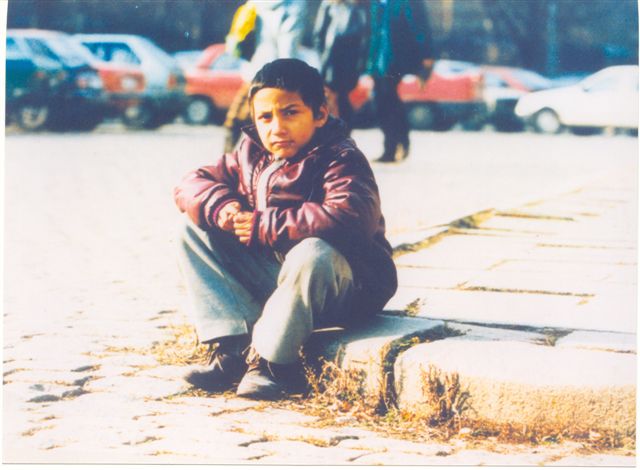 At the request of Prime Minister Boyko Borissov, the work on the National Children’s Strategy project was halted due to negative public reactions, the social ministry said. However, they emphasize that the purpose of the document was never to take children from their families and to oppose the interests of children and their parents. However, the Ministry of Labor and Social Policy takes into account the reactions of the public and the fears that have arisen as a result of speculative interpretations of the measures set out in the draft strategy. The state will not decide instead of the parents or seize their rights. Support and care for the child and parents are linked. The best environment for the child is the family. ,,It is important for all of us to have a common understanding of the development of the next generation of Bulgarians”, said Boyko Borissov.
At the request of Prime Minister Boyko Borissov, the work on the National Children’s Strategy project was halted due to negative public reactions, the social ministry said. However, they emphasize that the purpose of the document was never to take children from their families and to oppose the interests of children and their parents. However, the Ministry of Labor and Social Policy takes into account the reactions of the public and the fears that have arisen as a result of speculative interpretations of the measures set out in the draft strategy. The state will not decide instead of the parents or seize their rights. Support and care for the child and parents are linked. The best environment for the child is the family. ,,It is important for all of us to have a common understanding of the development of the next generation of Bulgarians”, said Boyko Borissov.
New Wesley Room at Bristol
Here is a bit more about the building from the Methodist Heritage Organization:
George Whitefield invited John Wesley to preach outdoors for the first time to the miners of Bristol in 1739. Within a few weeks’ work started on building the New Room as a meeting place for two of the religious societies in the city, thus creating the world’s first Methodist building.
The current building dates from 1748 when the New Room was doubled in size. Its lower floor became known as John Wesley’s Chapel. It is still in regular use for worship as well as being used for cultural and educational activities and exhibitions. Upstairs John Wesley created twelve rooms around a beautiful central octagonal window. These provided accommodation for himself and any visiting preachers assigned to the Bristol circuit. They now contain a highly interactive Museum devoted to telling the story of John and Charles Wesley and the relevance of their work today.
Being well placed in the heart of the city, the New Room became a center for the Wesleys’ work in Bristol. It was where John’s strong sense of social justice was first expressed. The New Room became a base for running a school for the poor, for providing food and clothes to the needy, for offering free medical care to the sick, and for helping those in the nearby prison. It was also the first place to use John Wesley’s ‘class’ system, where members were divided into sub-groups for mutual support and development. The New Room has been described as ‘the cradle of Methodism’.
The New Room was one of John Wesley’s three key centers. Many of the annual conferences were held there, including the one that first created Methodist circuits. Bristol’s trading links encouraged the growth of American Methodism. Thomas Webb, Francis Asbury, and others committed themselves to working there and sailed from nearby.
Bulgarian Orthodox Church deletes controversial opinion on National Strategy for the Child from website
A controversial opinion purported to be from the Bulgarian Orthodox Church’s Holy Synod urging a ban on terminations of pregnancy, for religion to be a compulsory subject in schools, no sex education, and opposing the full ban on corporal punishment in schools, has been deleted from the church’s official website.
The opinion, posted in response to the Bulgarian government’s draft National Strategy for the Child 2019-2030, had not been voted by the Holy Synod, nor approved by the church’s Patriarch Neofit, nor signed by the Metropolitans, Bulgarian National Television (BNT) reported.
It had been sent for posting on the website by Gavriil, the Metropolitan of Lovech, BNT said.
After it appeared on the website on February 8, the opinion – widely covered in the Bulgarian media – caused extensive negative reaction on social networks.
Specialist church news website Dveri said that the opinion had not been considered and approved by the Bulgarian Orthodox Church’s governing body, but was an initiative of the Synod’s cultural and educational department headed by Metropolitan Gavriil.
Dveri quoted a statement by Naum, the Metropolitan of Rousse, who said that the document had not been officially discussed by the Holy Synod.
“The ‘opinion’ binding the Bulgarian Orthodox Church Holy Synod as an institution was a project personally created by Ms Dessislava Panayotova, an associate of the cultural and education department of the Synodal office…that does not mean that the Holy Synod will accept it unhesitatingly and unambiguously,” Naum said.
“The Bulgarian Orthodox Church, as a nutritionist of Bulgarians and moral values in the Bulgarian family, always will promote ethical norms in education, but will not tolerate in any way violence against children, in whatever form, especially if it is linked to so-called ‘religious education and training’,” he said.
Issues related to termination of pregnancy and children at risk are issues for future profound reflection in Bulgarian society “addressing appropriate reflections on God’s will, the dignity of the mother, as well as the significance of each specific case, related to domestic violence and violence specifically against women,” Naum’s statement said.
“All other topics concerning the education and upbringing of Bulgarian children should be discussed by relevant educators and specialists, who also have the view of theological science, thus defining the most accurate and correct approach for future recommendations on the issues raised,” the statement said.
PENTECOSTAL BABEL
PENTECOSTAL BABEL
As we reflect upon Pentecost Sunday, I submit here my recently published article in the preaching journal of Columbia Theological Seminary. I was pleased that this piece was made the lead article in the Pentecost edition of the Journal for Preachers (just ahead of Walter Brueggemann’s contribution, which made me feel pretty good!). The article is also a smattering of one of the chapters of my upcoming theological memoir, which is presently being copy-edited by Cascade Books. I welcome your comments and criticisms!
“NOW, DO NOT GO FROM THIS MEETING AND TALK ABOUT TONGUES, BUT TRY TO GET PEOPLE SAVED!”
WILLIAM SEYMOUR, THE AZUSA STREET MISSION
One of the reasons that I voraciously enjoy the Journal for Preachers is that I am a Pentecostal. I find myself terrifically motivated by the perspectives of this community of mainline Protestant preachers, who seem to so effortlessly move exegetical and theological dirt around the jobsite to uncover treasures I would never otherwise discover. In this collegial spirit, I thought our readers might enjoy a Pentecostal perspective on the Day of Pentecost, particularly the phenomenon that pushes the entire story off the ground: the gift of tongues. In circles where the emphasis of Acts 2 is typically placed on the birthday of the Church, perhaps moving the dirt around the tongue talking, the early morning racket, and the accusations of drunkenness will reveal some hidden gems.
The Sign of Tongues in the Pentecostal Tradition
It is safe to say that the average man on the street, if he has heard of a Pentecostal, associates us with one of our odder habits: what is typically called “speaking in tongues.” We take this phrase from the King James translation of the book of Acts in the New Testament, a translation that was hammered out during Shakespearean times. You might also call the habit, more contemporarily, “speaking in languages.”
Speaking in tongues is what Pentecostals became known for early on, especially at the Azusa Street Revival at the beginning of the twentieth century. Its leader, William Seymour, tried his best to focus people’s attention not toward the phenomenon of tongues, but toward the lifestyle such Spirit-empowerment produced. “If you get angry, or speak evil or backbite, I care not how many tongues you may have, you have not the baptism with the Holy Spirit,” the illiterate Seymour preached.[i] Still, it is hard not to focus on a group of people who spontaneously burst into shouting a bunch of syllables that sound like gibberish.
“We believe in speaking with other tongues as the Spirit gives utterance,” my denomination’s faith statement reads, “and that it is the initial evidence of the baptism in the Holy Ghost.” As if speaking in tongues were not aberrant enough, this statement seriously upped the ante. If you don’t speak in tongues, you haven’t really had a full experience of the Holy Spirit, we declared. The gift of tongues is the entrance requirement into Spirit baptism and the complete Christian life. If you don’t do it, according to our particular tradition, you’re not a bona fide Pentecostal.
Our motives in this effort to encourage the gift of tongues have always been pure, but slapping a bunch of strictures around the activity of the Holy Spirit is tricky business at best, like trying to tame the wind. At worst, we can dress up to play the part of God. Certainly God “does not change like the shifting shadows,” James 1:17 says, but neither is God beholden to formulas. In erring to the latter side, I have seen and heard all kinds of personal stories about well-meaning Pentecostals trying to “help” others receive the gift of tongues, and the stories range from the horrific to the hokey.
Growing up, there were plenty of altar calls to receive the Holy Spirit by way of the “sign” of speaking in tongues (signage is the language for the gift used in Mark 16:17). People often testified of “seeking” the gift for many months (One new convert of our congregation who was in seeking mode remarked, “The Holy Ghost sure is an elusive thing, ain’t He?”). Seekers would crowd the altar, and holy huddles would form around them, swaying back and forth, everyone praying out loud, eight, ten, twelve hands on the seeker’s shoulders and head. At some point after the seeker had been thoroughly leaned on by the group, someone would take the lead. The leader would stand face to face with the seeker, and the oral exam would begin. “Speak out!” “Speak anything that comes to mind!” I have seen people pat the chin of the speaker with the back of their hand up and down, over and over. Judge us if you must, but the Catholics believe that the communion wine transubstantiates into real blood. Are we Pentecostals not also allowed some hocus-pocus?
If there were Holy Ghost blockages that the prayer huddles could not break through, individual attention was warranted. The pros were called in with tactical stents. One friend of mine was taken to a room and given practice words. “You can do it!” he recalls the pro’s encouragement. In my mind the scene looks like an interrogation room in an episode of Law and Order, a hanging light bulb over a metal desk, the pro with a walkie-talkie strapped to his belt to relay any breakthrough. Even with such serious help, my friend never did speak in tongues.
In fact, I know all kinds of people who identify with Pentecostalism but never crossed the tongues threshold. My denomination is still trying to figure out what to do with them. Jesus told Nicodemus in John 3:8 that “the Spirit blows wherever it pleases.” “The Holy Ghost sure is an elusive thing, ain’t he?”
Glossolalia and the Repair of Language
There are all kinds of smart studies on the phenomenon of speaking in tongues, typically called glossolalia in academic circles (from the Greek words glossa – language – and laleo – to speak). The experience of tongues is not particular to Pentecostals, or even to Christians, but there does seem to be a common thread uniting those who participate: Glossolalia is the language of the underclass. In the words of Randall Balmer at Barnard University: “It provides a voice to people who feel they have no voice.”[ii]
I fear that such a definition might be interpreted as Marxist escapism, tongues as an opiate for the poor. I have never thought about tongues as some Christian version ofthe Exorcist, eyes rolling back into the head for a few moments of ecstasy, like a drug hit. Tongues are not the result of some kind of divine possession, which seems to be Paul’s point in 1 Corinthians 14:32 — “The spirits of prophets are subject to the control of prophets.” Instead, at the most elemental level, tongues are about…tongues. Tongues are about language, about words. They beg the question, “Where does language come from and what does it mean to do?”
Even the most secular among us would readily acknowledge that the project of human language is in deep disrepair. The Quaker spiritualist, Richard Foster, contends:
The tongue is our most powerful weapon of manipulation. A frantic stream of words flows from us because we are in a constant process of adjusting our public image. We fear so deeply what we think other people see in us that we talk in order to straighten out their understanding.[iii]
Is not such evidence of the seductive and devalued power of language all around us? Just listen to the droll of the cable news wars, in which language is weaponized to the point where logic and objectivity are chess pieces to be played, ninjas stars to be thrown. And hasn’t the larger church lost the battle of fighting devalued words with more devalued words that are theological in nature? “Christian language needs to be redeemed,” Marcus Borg argues.[iv] The Church has not been able to save us from the word vomit soup we now swim in. We are all growing increasingly illiterate, shouting words back and forth that have little meaning and less value. All that matters is how sharply we can carve out the edges of our words.
Historically, Christian thought has been on the forefront of deconstructing the power of words to their constituent elements. There is plenty in the Bible about the potency of language (my mother was fond of quoting James 1:19 in our home, “Be quick to listen and slow to speak”) and this tradition has grown throughout the centuries. From the first monk, Anthony the Great in the third century, Christian monks attacked word vomit with the powerful weapon of silence. Thomas Merton, the famous trappist monk of the last century, renowned for his vows of silence, considered words to be the building blocks of the “false self” that we project onto others for our own perceived good.[v] His corrective: create silence. Soren Kierkegaard, a Danish theologian, wrote well over a century ago, ““If I were a doctor and could prescribe just one remedy for all the ills of the modern world, I would prescribe silence.”[vi] Scores of similarly beautiful quotations on the power of silence from a thousand Christian mystics fill the literature of church history.
Pentecostals are a part of this Christian trajectory, but have attacked the same problem of word vomit from a dramatically different angle. You might say that the monastic tradition fought word inflation by raising the interest rates on language. The fewer words in play, the better their value. We Pentecostals did not follow this approach. As an underclass people, perhaps we saw silence as, in the words of Wendell Berry, “the distinguishing characteristic of absolute despair.”[vii] So we just decided to receive a whole new language altogether, and by doing so, to transcend despair.
The Post-Babel Language of God
In Acts 2, the followers of Jesus are waiting for the fulfillment of the promise of 1:5: “For John baptized with water but in a few days you will be baptized with the Holy Spirit.” And then, like a sandstorm, it hit. “All of them were filled with the Holy Spirit and began to speak in other tongues as the Spirit enabled them” (2:4). But that is only where the true story begins. It is the response of the onlookers to the phenomenon of speaking in tongues that constitutes the real meat of the narrative of Acts 2.
Now there were staying in Jerusalem God-fearing Jews from every nation under heaven. When they heard this sound, a crowd came together in bewilderment, because each one heard their own language being spoken. Utterly amazed, they asked: “Aren’t all these who are speaking Galileans? Then how is it that each of us hears them in our native language? Parthians, Medes and Elamites; residents of Mesopotamia, Judea and Cappadocia, Pontus and Asia, Phrygia and Pamphylia, Egypt and the parts of Libya near Cyrene; visitors from Rome (both Jews and converts to Judaism); Cretans and Arabs—we hear them declaring the wonders of God in our own tongues!” Amazed and perplexed, they asked one another, “What does this mean?” (2:5-12)
Languages old and new, spewing forth from the poor white trash of Galilee, now suddenly linguists. Indeed, what does such an event mean?
It is hard to doubt that a very specific Old Testament text stands behind Acts 2, backlighting its meaning. It was way back in Genesis 11 where the nations highlighted in Acts 2 first endured their birth. There, the story of the Tower of Babel adds two great brush strokes to the burgeoning picture of YHWH in the early days of humanity, a God who is ferociously particular. Those two new particularities painted in Genesis 11 are simply that (1) God doesn’t care much for urban living and (2) really disdains dictatorial regimes with their forced homogeneity. “Come, let us build ourselves a city, with a tower that reaches to the heavens, so that we may make a name for ourselves,” the whiz kids of the Mesopotamian valley devised in Genesis 11:4. Armed with their Apple computers, their new brick-making technology and cool, horn-rimmed eyeglasses, they sought to remake history.
But God is not enthused.
“Come, let us go down and confuse their language so they will not understand each other,” God decides after convening a council of Himself. “That is why it was called Babel – because there the Lord confused the language of the whole world,” scattering them “across the face of the whole earth.” In the Old Testament tradition, God’s response to Babel is where languages (other than Hebrew?) began. The project of multiple languages/tongues was meant to prevent human oppression at the Tower of Babel.
Of course, humanity found a way to derail that project of multiple languages as well. The Egyptian Empire would soon rise, forcing everything it could force on those who did not speak Egyptian. The Babylonians would give way to the Persians would give way to Alexander the Great would give way to the Romans. One Tower of Babel was replaced with thousands more ethnically specific. By the time of Acts 2, there are too many towers to count; thousands of ethnic groups, attempting to build bigger towers, to control the “foreigners” around them. And then the Holy Ghost descends, and in one fell swoop, there are no more foreigners. A bunch of tongue-talking, illiterate Galileans turned all the towers of Babel to rubble.
At the Day of Pentecost, the crisis whereby human languages separated the peoples of the earth, keeping them at odds with one another, is suddenly eradicated. Oppression gives way to the birth pangs of unity. “We hear them declaring the wonders of God in our own tongues!” the astonished nations of the world gather to proclaim. Languages that were once unintelligible are rendered intelligible. Confusion gives way to understanding. “What does this mean?”
Every Christian tradition has to answer this question for themselves, of course. There were some in the Jerusalem crowd that simply assumed the disciples had been binging on bloody maries and mimosas, what with all their round-the-clock celebration of Jesus’ supposed resurrection. We tongue-talkers are still considered imbalanced, if not loony.
But for Pentecostals, the answer to the question of the crowds still rings out. “What does this mean?” It means in part that God has visited us to change lives and to change history, to forge new creation from the old. This new creation, wrought by the Holy Spirit, requires not silence, but declaration. This new creation requires wonder and bewilderment. Most of all, this new creation requires new tongues — the only intelligible language in God’s new world. Ralph Waldo Emerson said that language is the archive of history.[viii] God’s new history operates on new words. Tongues are God’s grand finale of holiness; the final sanctification of language itself so that all things might be made new.
T.S. Eliot wrote about his frustration of “Trying to learn to use words, and every attempt is a wholly new start, and a different kind of failure.”[ix] If part of the meaning of the Tower of Babel is that no particular group of people has the corner on the word market, I am certainly not insinuating that Pentecostals have a corner on the tongues market. Such a claim would be transforming tongues to propaganda. I am sure there are abuses and forgeries. Rainer Maria Rilke told a young poet, “Even the best err in words when they are meant to mean most delicate and almost inexpressible things.”[x]
Even so, what I mean to say is that rather than capitulating to word vomit or silence, there is something beautiful about offering the very elements of language as worship unto the God of all language. Our babble somehow levels the towers of Babel all over again. Each Sunday, is this not what we preachers do?
[i] Aaron T. Friesen, Norming the Abnormal: The Development and Function of the Doctrine of Initial Evidence in Classical Pentecostalism (Eugene, OR: Pickwick, 2013), pg. 58.
[ii] Miller, “BeliefWatch: Spirit Filled.” http://www.newsweek.com/beliefwatch-spirit-filled-107031, para. 4.
[iii] Richard Foster, Celebration of Discipline: The Path to Spiritual Growth (New York: Harper Collins, 1988), pg. 101.
[iv] Marcus J. Borg, Speaking Christian: Why Christian Words Have Lost Their Meaning and Power – and How they can be Restored (New York: Harper One, 2011), pg. 2.
[v] Fred Herron, No Abiding Place: Thomas Merton and the Search for God (Lanham, NY: University Press of America, 2005), pg. 55.
[vi] Rabindra N. Kanungo and Manual Mendonca, Ethical Dimensions of Leadership(Thousand Oaks, CA: Sage, 1996), pg. 101.
[vii] Wendell Berry, What Are People For?: Essays (Berkeley, CA: Counterpoint, 2010), pg. 59.
[viii] Ralph Waldo Emerson, The Essays of Ralph Waldo Emerson (Cambridge: Harvard, 1997), pg. 13.
[ix] T.S. Elliot, Four Quartets (Orlando: Harcourt, 1943), pg. 30.
[x] Rainer Maria Rilke, Letters to a Young Poet (New York: W.W. Norton, 1934), pg. 26.
Cup & Cross featured in the Introduction to Anabaptist History
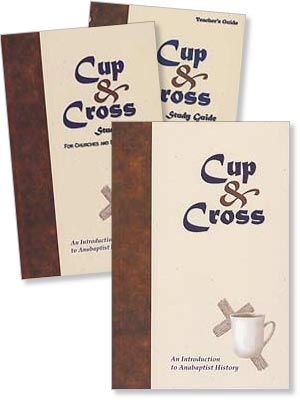 This book will serve as a tool for the serious student of Anabaptist history, as well as an in-depth introduction for those who are relatively new to the history of the church. It covers the doctrines of Anabaptism
This book will serve as a tool for the serious student of Anabaptist history, as well as an in-depth introduction for those who are relatively new to the history of the church. It covers the doctrines of Anabaptism
Pentecostal articles for Pentecost Sunday
Offering a few recent Pentecostal articles in light of the upcoming Pentecost Sunday celebration: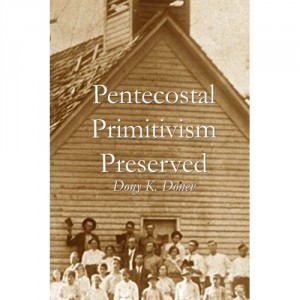
- The Forgotten Azusa Street Mission: The Place where the First Pentecostals Met
- Diamonds in the Rough-N-Ready Pentecostal Series (Complete)
- 95th anniversary of the Pentecostal movement in Bulgaria
- Toward a Pentecostal Solution to the Refugee Crises in the European Union
- Historical and Doctrinal Formation of Holiness Teachings and Praxis among Bulgarian Pentecostals
- Pacifism as a Social Stand for Holiness among Early Bulgarian Pentecostals
- The Practice of Corporate Holiness within the Communion Service of Bulgarian Pentecostals
- Sanctification and Personal Holiness among Early Bulgarian Pentecostals
- First Pentecostal Missionaries to Bulgaria (1920)
- Historical and Doctrinal Formation of Holiness Teachings and Praxis among Bulgarian Pentecostals
- The Everlasting Gospel: The Significance of Eschatology in the Development of Pentecostal Thought
- Online Pentecostal Academic Journals
- What made us Pentecostal?
- Pentecostalism and Post-Modern Social Transformation
- Obama, Marxism and Pentecostal Identity
- Why I Decided to Publish Pentecostal Primitivism?
- Historic Pentecostal Revival Tour in Bulgaria Continues
- The Land of Pentecostals
- Pentecostal Theological Seminary Address
- A Truly Pentecostal Water Baptism
Global Network of Bulgarian Evangelical Churches outside of Bulgaria (2019 Report)
 Bulgarian Evangelical Churches in the European Union (2019)
Bulgarian Evangelical Churches in the European Union (2019)
- Bulgarian Evangelical Churches in Germany
- Bulgarian Evangelical Churches in Spain
- Bulgarian Evangelical Churches in England
- Bulgarian Evangelical Churches in France
- Bulgarian Evangelical Churches in Belgium
- Bulgarian Evangelical Churches in Italy
- Bulgarian Evangelical Churches in Cyprus
- Bulgarian Evangelical Churches in Crete
Bulgarian Evangelical Churches in America (2019 Report)
- Bulgarian Evangelical Churches in Chicago (2019 Report)
- Bulgarian Evangelical Churches in Texas (2019 Report)
- Bulgarian Evangelical Churches – West Coast (2019 Report)
- Atlanta (active since 1996)
- Los Angeles (occasional/outreach of the Foursquare Church – Mission Hills, CA)
- Las Vegas (outreach of the Foursquare Church – http://lasvegaschurch.tv)
- San Francisco (occasional/inactive since 2012, Berkeley University/Concord, CA)
Bulgarian Evangelical Churches in Canada (2019 Report)
- Toronto (inactive since 2007)
- Toronto/Slavic (active since 2009)
- Montreal (occasional/inactive since 2012)
CURRENTLY INACTIVE CHURCHES/CONGREGATIONS:
- New York, NY (currently inactive)
- Buffalo, NY (occasional/inactive)
- Jacksonville, FL (occasional/inactive since 2014)
- Ft. Lauderdale / Miami (currently inactive)
- Washington State, Seattle area (currently inactive)
- Minneapolis, MN (occasional/inactive since 2015)
READ MORE:


